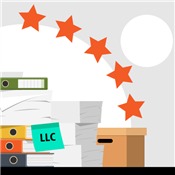Best Website Builder for Small Business
Find the top website builders for small businesses. Get the pros, cons and standout features to find your best match. Dive in now.
 |
Without the right website, people will find it harder to trust your business. But hiring a professional developer can eat into your profits.
That's where website builders can help you out.
Many use templates to let you quickly build a site. And you can also drag and drop elements to customize your site.
Some even let you build a simple site for free.
But what features do you need?
Read on to learn about the top website builders, including their pros, cons, features, and pricing.
The best website builder for your business will depend on your needs.
- Wix for branding your business
- Squarespace for flexibility
- Weebly for creating a free online store
- GoDaddy for marketing features
- Shopify for omnichannel selling
- IONOS for affordability
- WordPress for content websites
- HostGator for hosting services
- Duda for membership sites
- Bluehost for simple websites
- Zyro for AI Tools
- Hostinger for drag-and-drop functionality
- Webflow for animations
What is a Website Builder?
A website builder lets you build a site without needing to know how to code. It's typically a drag-and-drop builder. That means you can visually drag and drop elements such as images and text around the web page to design it.
Website builders are also known as WYSIWYG web builders. The acronym stands for "What You See is What You Get" which means whatever you see on the "canvas" of the editor, that is how your website will look like.
Some website builders let you access the code of the site you make. If you have some coding knowledge, or if you have web developers on your team, you can make even more customizations to your site.
13 Best Website Builders for Small Businesses
 |
Each website builder on this list has its own edge over the others. Let's talk about their pros and cons, pricing, and features.
Wix: Best for Branding Your Business
Pros:
- Free plan available
- Extensive Wix App Market
- Excellent customer service
- Great room for scalability
Cons:
- Can't switch templates
- Expensive pricing plans
- Relatively slow website editor
Why we like it:
Wix is a website builder that has, subjectively speaking, a lot of aesthetically pleasing designs. With over 800 free templates, you'll surely find something you like.
It comes with project page presets which are suitable for building portfolios. You can also integrate your social media accounts so visitors can view your feed from the site. You can showcase whatever product or projects you've shared on them.
You can even host events, webinars, and workshops. If you're a service business, you can also take bookings. To schedule meetings with clients, you can integrate your site with Zoom.
Pricing:[1]
You can create a free site with Wix, but it'll come with limited features. For example, your site will have Wix ads on every page. Your storage and bandwidth are also limited to 500 MB only.
Not to mention, you won't be able to set up online payments and Google Analytics. But you can access more features when you upgrade.
The pricing for general and eCommerce websites differ. For general pricing plans, refer to the table below:
| Price per month (billed annually) | |
|---|---|
| Combo | $16 |
| Unlimited | $22 |
| Pro | $27 |
| VIP | $45 |
For business and eCommerce plans, the pricing is as follows:
| Price per month (billed annually) | |
|---|---|
| Business Basic | $27 |
| Business Unlimited | $32 |
| Business VIP | $59 |
Features:
With any Wix plan, you can connect a custom domain or get a free domain for a year. Your site will also have a free SSL certificate.
Depending on the plan, you can get from 2 GB to 100 GB of storage.
Other features include:
- Themes
Wix has industry-specific themes, so you can easily choose one depending on your website's purpose. For example, you can choose from travel services templates or portfolio templates.
- Media
You can have from 30 minutes to 5 hours of video storage, depending on your chosen plan. High-resolution videos and images will be resized by their Image Resizer feature for better website performance.
- eCommerce
If you opt for eCommerce plans, you can list unlimited products or set up your own dropshipping store. You can also set up subscriptions and collect recurring payments from your customers.
If you're an artist, you can sell your artwork or get them printed on products.
Other online store features, such as abandoned cart recovery, multiple currencies, shipping, etc., are available.
- Ads
You can get up to $600 in ad vouchers, with $500 for Google Ads and $100 for Bing ads. This can help expand your reach and gain more audience for your site.
- SEO
SEO features are baked in, so you can add meta tags, URL slugs, and more. There are also 301 redirects, bulk redirects, and you can import up to 500 URLs.
- Accessibility
The website builder has built-in accessibility tools. It comes with a wizard that pinpoints accessibility issues so you can fix them as needed.
- Apps and Integrations
You can visit the Wix App Market to see various extensions that add features to your site. You can use them to collect leads, analyze traffic, promote your site, or use other design elements not available in the editor.
Who should use Wix?
If you want to build an impressive website or portfolio with little effort and great control over your website design, then Wix is for you. It's particularly great for freelancers and small businesses. But if you're looking to start a blog, there are better options.
Squarespace: Best for Its Flexibility
Pros:
- Extensive courses and help center
- Unlimited contributors (Business and Commerce plans)
- 24/7 customer support
- Video studio app
Cons:
- Transaction fees
- No free plan available
Why we like it:
Squarespace uses a drag-and-drop editor that's really flexible. Other website builders use a "box-type" drag-and-drop, which could be limiting.
The difference is, with Squarespace, you can place the elements almost anywhere on the page. That makes it really easy to get the look you prefer.
Also, the sidebar lets you navigate the editor intuitively. It progressively shows you options as you click through the tabs helping you avoid getting overwhelmed with features.
Pricing:[2]
Squarespace doesn't come with a free plan, but it does offer a free trial. The good news is that a free trial starts every time you create a new site. It doesn't begin the moment you create your account.
Therefore, you can create multiple websites at different times and have different free trial periods for each. If your trial expires, you can contact them to extend the period by 7 days.
If you decide to commit, the pricing is as follows:
| Price per month (billed monthly) | Price per month (billed annually) | |
|---|---|---|
| Personal | $23 | $16 |
| Business | $33 | $23 |
| Basic Commerce | $36 | $27 |
| Advanced Commerce | $65 | $49 |
Features:
Any plan of Squarespace will get you a free custom domain (for the first year), a free SSL certificate, unlimited bandwidth, and 30 minutes of video storage.
Your website will also be mobile-responsive, so customers can access your store from any device.
Other than these essentials, features include:
- Themes
Squarespace has some of the most aesthetically pleasing themes. But you can still change font styles and color palettes to match your branding. If you're just starting your business, you can choose from the pre-built palettes and font packs.
You can create a palette based on an uploaded image by choosing a base color and automatically generating the rest or custom picking each color. You can also change fonts from font packs. Styling them can make site-wide changes or changes specific to a section.
Also, there are over 100 pre-built sections, making editing fast and easy. But you can start with a blank page if you prefer to work from scratch.
- Animations
You can add animations to site elements to make the user experience dynamic. These can get triggered when visitors load a page or scroll through your site.
- Media
You can use free and premium images from Unsplash. However, if you'll be uploading your images, it's best to use 2500-pixel wide images, up to 500 kb in size.
You can also embed videos from YouTube, Vimeo, or Wistia.
- SEO
SEO features are built into the editor. Squarespace has a checklist that you can go through when setting up your site.
- Marketing
You can create newsletters or set up email campaigns. It's great for spreading the word about discounts, promotions, or new releases in your store.
- Integrations
If you need more features, you can check out Squarespace Extensions. You can get added features for bookkeeping, customer management, email marketing, etc.
Who should use Squarespace?
Squarespace is one of the best website builders when it comes to creative freedom. You can display multiple images in various layouts, edit the images after uploads, edit descriptions, or add links to them.
If you need a website made quickly, there are other options. It also has limited navigation, so huge websites with many pages may struggle.
Weebly: Best for Creating a Free Online Store
Pros:
- Free online store
- Affordable pricing
- Simple interface
- Drag-and-dop feature
Cons:
- Transaction fees
- No free domain
- Tricky mobile editor
- Block layout instead of flexible grid
Why we like it:
Weebly is one of the most affordable website builders with enough features to build an online store. You can even set one up for free.
Even with the free plan, you can already sell unlimited items. You can set up a quick shop, use item badges, have product options, etc.
The website editor interface is also simple and intuitive. Clean, modern, and minimalist themes are available. If you don't need an online store, you can also create a simple business website, a portfolio, or a blog.
Pricing:[3]
Weebly offers a free plan, which means you can try out the interface for as long as you prefer. The downside is that your website won't seem professional due to Square ads.
Once you decide to upgrade for more features, you can choose from the following:
| Price per month (billed monthly) | Price per month (billed annually) | |
|---|---|---|
| Personal Plan | $13 | $10 |
| Professional Plan | $16 | $12 |
| Performance Plan | $29 | $26 |
Features:
In any of the plans, you can get a free SSL certificate and access to eCommerce features. But you can't connect a custom domain with the free plan.
Let's talk about the rest in detail:
- Templates
Templates for different industries are available. You can choose one for an online store, business website, portfolio, blog, etc. Unlike some of its competitors, you can switch themes and won't have to start from scratch.
If you have a web developer on your team, or if you have knowledge in coding, Weebly has added perks for you. You can access the HTML and CSS code for your theme to make customizations.
- Store
You can set up your store within or outside the editor. You can add physical or digital products or add your services. You can also set up memberships and events.
If you're a non-profit organization, you can even accept donations.
- Media
There's a few stock images you can use with Weebly. They're even categorized by industry. Unfortunately, the selection is limited, and you can't even search for an image.
But you can add an image URL. You can also add HD videos or link a YouTube video, and upload audio and documents as needed.
- Contributors
You can add contributors or editors if multiple people are working on the site.
- Apps
You'll find an Apps tab within the editor where you can browse, install, and manage apps from the Weebly App Center.
- SEO
You can edit page descriptions, meta keywords, URLs, and header and footer codes as needed.
Who should use Weebly?
Weebly is great if you're new to website building and blogging. Their built-in tools make posting and managing blog content very easy. Weebly also has email marketing tools that let you create email lists, newsletters, and members-only style websites.
GoDaddy: Best for Marketing Features
Pros:
- Easy to use
- Free plan and free trial available
- Low introductory rates
- POS integration
- 24/7 customer support
Cons:
- Regular prices can get expensive
- Limited flexibility when designing your site
- Can't sell with lower-tiered plans
Why we like it:
GoDaddy is a website builder, a domain registrar, and web hosting provider at the same time. It can serve as your one-stop shop with all things website-related. For example, you can purchase a domain and create your website in one platform.
It's simple to use and easy to learn. That said, people who prefer to have many customization options will be put off with it. The reason why it's not overwhelming is because there's only so much you could do.
But if you're looking for a website builder that can up your marketing game, GoDaddy can help you out. You get a calendar to schedule your social media posts. You can also create digital ads and send out targeted emails to your customers.
Pricing:[4]
GoDaddy offers a free plan. You can create your online store with it, but that will come with limited features. To access all features, you'll have to upgrade.
There are 4 plans to choose from. You can choose to pay monthly, annually, or select 2-3 year plans. Annual and multi-year plans come with a discount.
| Price per month (introductory price for the first year) | Price per month (renewal) | |
|---|---|---|
| Basic | $9.99/mo | $11.99/mo |
| Premium | $14.99/mo | $21.99/mo |
| Commerce | $16.99/mo | $24.99/mo |
| Commerce Plus | $29.99/mo | $44.99/mo |
Features:
When creating your site with GoDaddy, you get a free SSL certificate. You can also connect a custom domain (for paid plans). But unlike its competitors, you don't get a free domain for a year.
You can access all paid features through the 7-day free trial. It's the best time to test out the interface.
Some of what you can get are:
- Themes
GoDaddy has industry-specific templates that are modern and professionally designed. They are also responsive and mobile-friendly, so your customers can view your content with no problem.
Keep in mind that it's not a literal drag-and-drop builder. That means you can't freely move elements around the web page. But there are premade sections that will help you customize the templates faster.
- Media
GoDaddy has a studio where you can do multiple things. You can create a free logo from one of their templates. You can also edit images to be used on your site.
There's also a library of stock photos you can use. It's great to serve as place holders or as cover images for your web pages.
- eCommerce
GoDaddy has competitive eCommerce features. You can add physical and digital products. For digital products, you can add videos, eBooks, music, etc.
If you're a service business, then the features for appointments will suit your needs. Your clients can book one-time appointments. But you can also set up one-time events or recurring ones.
Customers can book appointments for online (i.e., Zoom calls) or in-person. It works great for online consultations, yoga classes, webinars, etc.
- Blog
Blogging features are extremely lacking with GoDaddy. There's only a few things you could do. You can add a featured image, post categories, videos, images, and dividers.
You can't even set up different headings such as H2s and H3s which are typically used for subheadings.
- Marketing
However bad the blogging features are, GoDaddy's marketing features won't let you down. There's a calendar you can use to manage your social media posts. You can create and schedule them, and have them posted everywhere (such as Facebook, Instagram, and Twitter).
You can also create digital ads right on your dashboard. And to help promoting your products and services, you can also make use of email marketing. Compose a campaign through their templates or start with a blank canvas.
- Customer engagement
Just like its marketing features, there's also a single dashboard where you can engage with your customers. Whether they reach you from Facebook, Instagram, or SMS, you can respond to them right away.
GoDaddy Conversations lets you organize, view, and reply to these messages. And by downloading the mobile app, you can respond anytime, on the go.
You can also set up memberships on your site. Through GoDaddy Connections, you can choose whether anyone can create an account or if they need an invite.
- Integrations
You can connect your GoDaddy site to Google Analytics and Google AdSense. With Google Analytics, you can get more data on your site visitors. This can help you understand your customers better.
Google AdSense, on the other hand, can help you profit from your site through ads.
Who should use GoDaddy?
GoDaddy is great for small businesses and freelancers looking to set up an online presence. Beginners who want to create a modern-looking website without breaking the bank will be able to make great use of this website builder.
But if you want complete design control, it's not ideal. It's also not ideal for blogs since it's rather limited in terms of customization.
Shopify: Best for Omnichannel Selling
Pros:
- Shopify POS Integration
- International market management
- Currency conversion
- 24/7 customer support
Cons:
- Limited templates
- Transaction fees
- Less intuitive website builder
Why we like it:
Businesses with brick-and-mortar stores use Shopify to sell online easily. It syncs inventory wherever a customer makes a purchase. You can also list unlimited products, so it's great if you're only selling online.
You can categorize products, track SKUs, and set up shipping information. You can even expand your reach by integrating social media. For example, you can sell on Instagram or create marketing campaigns through Pinterest, Snapchat Ads, and SMSBump.
We wouldn't advise you to go for it if you're a content-only website.
Omnichannel selling is an approach you can take as a retail business to make the purchasing experience smooth for your customers.
Say your customer is thinking of purchasing a product in store. If you have QR codes with your products, they can scan the QR to be taken to your online store. On this platform, they can read more information about a product.
There are many more things you could do with omnichannel commerce. Despite having multiple sales channels, your products are synced, and your data is synced. It will also make management easier for you as a business owner.
Pricing:[5]
There are three plans to choose from, each with varying features. Paying annually will help you save more.
| Price per month (billed monthly) | Price per month (billed annually) | |
|---|---|---|
| Basic | $39 | $29 |
| Shopify | $105 | $79 |
| Advanced | $399 | $299 |
Keep in mind that with Shopify Payments, there are transaction fees. Shopify Payments is a payment processor you can use with your store. It accepts all major payment methods.
| Credit Card Rates | Basic Plan | Shopify Plan | Advanced Plan |
|---|---|---|---|
| Online | 2.9% + 30¢ | 2.6% + 30¢ | 2.4% + 30¢ |
| In-person | 2.7% + 0¢ | 2.5% + 0¢ | 2.4% + 0¢ |
Features:
Your site can get a free SSL certificate with any paid plan. Like its competitors, you can connect a custom domain. And you don't need to worry about web hosting.
All plans let you sell unlimited products. You can also have up to 1,000 inventory locations.
Generally, Shopify's features are focused on eCommerce instead of web design. Here's what you can get:
- Themes
Like other website builders, you can also choose from different templates with Shopify. Subjectively speaking, they're really well-designed. Your online store will look professionally made.
You won't be using a drag-and-drop builder. Instead, the website editor has premade sections where you can just click on elements and change the content as needed. You can add elements (i.e., text, image, button) in a section but there are also limited selections.
- Media
There's an image library with free stock photos you can use for your cover images. The images are organized into different categories to help you choose easily.
Planning to add more content? You can also upload images, videos, and documents to your site. You can link your YouTube videos on your pages as well.
- Product organization
If you have multiple product types, you can categorize them (e.g., as backpacks, accessories, clothing, etc.). You can also list vendors, set up collections, and add tags to make them searchable.
- Product pricing
By inputting the cost per item, you can identify your profit and margin, as it shows automatically. You can also charge taxes on your products.
- Inventory management
To track your products, you can use SKU or input barcodes. You can also keep selling if the product's out of stock. If you have physical stores, you can list the locations and indicate where products are available.
- Shipping
If it's a physical product, you can input the weight and customs information. You can also list the country or region of origin. All plans offer shipping discounts from DHL Express, UPS, or USPS.
- Customer data
You can send personalized communications to your customers by importing or adding customer details. You can filter and group them, which would be helpful with target marketing.
- Marketing
Abandoned cart recovery, automatic campaigns, and integrating marketing apps are some features to improve your sales. You can also set up discounts and promotions if you have them.
- Payments
You can use various payment gateways, including PayPal and Amazon Pay. You can also add manual payment methods such as bank deposits and cash on delivery.
Keep in mind that there are various rates for credit and debit cards. Third-party payment providers also have transaction fees.
- Integrations
You can explore the Shopify App Store for added features. You'll find integrations on social media apps, product reviews, automations, etc.
Who should use Shopify?
Shopify is a great choice for online-first small businesses. You can sell both physical and digital products from a Shopify online store. On the other hand, bloggers won't get the best use out of it.
IONOS: Best for Its Affordability
Pros:
- Affordable pricing plans
- Drag-and-drop editor
- 24/7 customer support
- 30-day money-back guarantee
Cons:
- Limited features
- No free plan or free trial
Why we like it:
IONOS actually has 2 website builders. You can choose from MyWebsite Now and MyWebsite Creator.
MyWebsite Now is the beginner-friendly option. It's suitable for creating simple business websites. But if you're creating a blog or an online store, you'll have to go for MyWebsite Creator.
Like its competitors, you get to choose from industry-specific templates. The premade layouts will help you build your site quickly. MyWebsite Now will have predefined sections where you can just replace content (images, text, etc.) to make it your own.
But if you want the drag-and-drop flexibility and more customizations, it's MyWebsite Creator that can provide that for you.
Pricing:[6]
IONOS website builders are more affordable than its competitors. Imagine creating a website for just a dollar a month!
Here's a list of its prices:
| Website w/o a store | Website w/ a store | |
|---|---|---|
| Starter | $5/mo for 6 months; $9/mo after | $5/mo for 6 months; $19/mo after |
| Plus | $1/mo for 12 months; $15/mo after | $1/mo for 12 months; $25/mo after |
| Pro | $15/mo for 6 months; then $25/mo after | $25/mo for 6 months; then $50/mo after |
Features:
Like its competitors, you can get a free domain for a year with IONOS. You also get a professional email address with varying inbox limits (depending on your storage plan).
For added security, your site gets a free SSL certificate.
Here's what else you can get:
- Templates
IONOS also offers professional templates for various industries. You could choose one for a restaurant, real estate, or travel, for example.
Designs are modern and corporate-looking. They're also mobile-friendly. But compared to its competitors, the customizations you can make are limited.
- Media
There's a library of over 17,000 royalty-free images you can use. Images are also automatically optimized so they could be loaded easily in any device.
If you use MyWebsite Creator, you can edit your images right on the website builder.
- eCommerce
You can sell physical and digital products with IONOS. There are features for inventory management, sizing options, and tax and shipping. You can also set up promos through coupons and discounts.
If you're a service business, there's also an online booking tool you can use. Your customers can book a reservation or appointment.
- Blog
Although there are blogging features, they're not as packed as what you would get with other website builders. You can schedule posts and create multiple accounts for your writers. But you're better off with WordPress if blogs are your site's main content.
- SEO and Marketing
IONOS' website builders come with built-in SEO tools. If you're on a Pro Plan, then you can use the RankingCoach SEO tool. It can help you look for important and related keywords.
MarketingRadar, on the other hand, is a feature that can help you track your competitors. You get info on their social media activities, for example.
- Security
IONOS offers a ready-made cookie banner. It can help you comply with GDPR laws and other privacy laws.
- Integrations
You can also sell on other online market places such as Facebook, Instagram, and Amazon. If you have a brick-and-mortar store, your website can work with Square's POS system.
Who should use IONOS?
IONOS's website builder is budget-friendly and good for small businesses. However, it has limited third-party integrations, and you can't use a domain name purchased from another provider unless it's transferred to IONOS first.
WordPress: Best for Content Websites
 |
| CREDIT: WORDPRESS |
Pros:
- Highly customizable
- Auto-save your edits
- Mobile app
- Import and export content
- 24/7 customer support
Cons:
- Steep learning curve
- Plugin conflicts
- Limited features on cheaper plans
Why we like it:
WordPress is used by many established businesses, including Fortune 500 companies. But it also works great for small-time bloggers or small businesses.
It's the largest web publishing platform. Do you work on blogs? Have video content? Stream podcasts? You can do it all with WordPress.
Plugins make it the most flexible and customizable website builder. That said, it's also easily breakable. Some plugins won't be compatible with others.
Pricing:[7]
WordPress is affordable, especially for small business owners. It offers a free plan, so you can try out the interface.
To access the website builder's full capabilities, however, you'll need to upgrade to a paid plan.
You can choose from the following:
| Price per month (billed monthly) | Price per month (billed annually) | |
|---|---|---|
| Personal | $9 | $4 |
| Premium | $18 | $8 |
| Business | $40 | $25 |
| Commerce | $70 | $45 |
Features:
In all paid plans, you can collect payments on your website and have access to unlimited email support. WordPress ads are also removed to keep it professional.
For annual plans, you'll even get a free domain for a year.
Other features you can get are:
- Plugins
With a Business and Commerce plan, you can add plugins to add extra features to your site. There are over 60,000 plugins for WordPress.
Some of the most popular ones are Jetpack (for security) and WooCommerce (for online stores). You don't really need plugins to create blog posts.
- Media
WordPress comes with a free photo gallery. You can add images through blocks such as Cover, Image, and Gallery blocks. You can also embed audio and videos.
- SEO
With a Business and Commerce plan, you'll get tools to enhance your site's content to optimize for search engines and social media. Yoast SEO is a popular plugin you can try.
- Reporting
You'll get in-depth stats and can integrate your site with Google Analytics. You can learn where the visitors come from, what they read, and when they visit.
These are also available through the WordPress app, so you can view and manage your website on the go.
- Integrations
There are 9 social media integrations with WordPress. You can connect SoundCloud, ReverbNation, YouTube, Goodreads, TikTok, Twitch, Discord, Diaspora, and Steemit.
If you opt for a Commerce plan, there are also integrations with top shipping carriers.
Who should use WordPress?
WordPress is one of the best website builders out there. It's flexible, with a wide range of plugins. It's also the best for making blogs. Bloggers, freelancers, creatives, businesses.
However, WordPress's backend is rather complicated. Its visual editor isn't very flexible, and it's not recommended for those who need a simple, easy-to-manage website.
HostGator: Best for Hosting Services
Pros:
- 30-day refund available
- Doesn't require a HostGator account
- Can switch templates without problems
Cons:
- No free plan or trial
- Transaction fees
- Price increases after introductory period
Why we like it:
HostGator is a hosting platform, but they also have a website builder called Gator. It has simple features that make it suitable for small businesses or personal use.
Even if it's just a simple website builder, you'll have the essentials for creating a website. Your site is also fully mobile responsive, so your clients or customers can reach you from any device.
There's nothing particularly outstanding with the website builder. But the fact that HostGator is primarily a hosting service means you can count on the speed and connectivity of your site.
Pricing:[8]
Gator has enticing introductory offers, but they can get expensive upon renewal. Unfortunately, they don't offer a free plan or free trial.
If you want to test out the platform, you can purchase the plan in full and then use the 30-day money-back guarantee.
| Price per month (billed annually) | |
|---|---|
| Website | $4.95 introductory offer |
| Website + Marketing | $7.95 introductory offer |
| Online Store | $13.95 introductory offer |
| Online Marketplaces | $19.95 introductory offer |
Features:
With Gator, you'll get free hosting with unmetered bandwidth. You can also connect your domain and get a free SSL certificate with any paid plan.
To get a free domain, you'll need to sign up for year-long terms.
But more than these, you can get:
- Templates and Editor
Like other website builders, HostGator also offers templates you can use. But there are two ways you can edit your website. There's the express mode and the traditional mode.
The express mode is not a drag-and-drop builder, but lets you switch up contents based on the predesigned sections.
It's the traditional mode that lets you choose your own template, then edit the contents through drag and drop. This feature is so flexible, even more flexible than Squarespace's drag-and-drop. You can literally place elements anywhere on a page - no limits.
- Media
You can use images from the Unsplash image library. But you can also upload your own, given the unlimited storage for images.
If your business is just starting, the LogoMaker can help. You'll also be supported by HostGator personnel should you need any.
- Marketing
These features include integrated eCommerce landing pages, pop-up lead capture forms, sharing blog posts through email, and automated email scheduling.
If you're a service business, email marketing features would be great for you. You can have up to 10 campaigns per month, send up to 1250 unique emails per month, and have unlimited contacts.
Marketing features that come with HostGator are especially helpful in reaching potential clients. You'll get $200 search engine marketing credits, for example. You can also set up calendar management or have a side-by-side view of your staff calendars.
- Online store
You can list 3 up to an unlimited number of products, depending on your plan. You may be charged a 3% transaction fee.
You can also upload digital products for download. Other online store features, such as online payment, discounts, inventory management, and shipping, are available.
Who should use HostGator?
If you need a simple website for yourself or for your small business, Gator is a good choice. It does well with portfolios and small blogs, and online stores.
If you're a creative who needs a lot of freedom when it comes to building the site, Gator might not be the best choice for you.
Duda: Best for Membership Sites
Pros:
- 14-day free trial (White Label Plan)
- Client and staff management features available
- 24/7 customer support
Cons:
- eCommerce is an add-on feature
- Limited members for the free membership feature
Why we like it:
Duda is a website builder packed with features from creating automatic workflows, marketing and SEO, and managing clients. But it's the memberships feature that tops the list.
You can create online courses and podcasts, for example. Or set up employee portals. If you're a service business, you can also create event registrations.
Managing and tracking your members is easy from the Overview tab. You can even review their past purchases and interactions. Depending on what you offer, you can bill members weekly, monthly, or yearly.
Pricing:[9]
You can choose from annual or monthly plans. To save some cash, you can choose an annual plan for a 25% discount.
| Price per month(billed monthly) | Price per month(billed annually) | |
|---|---|---|
| Basic | $19 | $14 |
| Team | $29 | $22 |
| Agency | $59 | $44 |
| White Label | Custom Pricing | Custom Pricing |
Keep in mind that Basic and Team plans let you create 1 site only. Agency and White Label plans let you create up to 4 sites.
If you need additional sites, here's the pricing for each plan:
- Basic: $19/mo per additional site
- Team: $14.99/mo per additional site
- Agency: $12.99/mo per additional site
If you need a large volume of websites (i.e., you're a developer), you can also create a custom plan.
All plans also come with the membership feature (Starter plan). But this is limited to 5 members only.
You'll need to upgrade the membership plan if you need more members. The Pro Plan costs $7/mo (up to 1,000 members) and the Business Plan is $15/mo (up to 10,000 members).[10]
Features:
Your website will be hosted on Amazon Cloud. You'll also get a free SSL certificate.
Here's what else you can get:
- Templates
Duda has lots of modern templates. They're aesthetically pleasing and would be suitable for different types of websites. You can select a template for an online store, business, travel, etc.
Your site will also be mobile-friendly. That way, your customers can view your site on any device with no problem.
What makes Duda even easier to use is that you can create multiple pages of your site based on a single design.
- Media
There's an image library you can access with millions of free and premium images.
- SEO and Marketing
To help with SEO, you can edit meta titles, keywords, descriptions, etc. Your site is also optimized for Google's PageSpeed test.
Also, there are widgets you can use to help with conversions. You can create popups, set up forms, or display your social feeds, for example.
Duda has plenty of marketing resources to help with your strategies. You can download eBooks and decks, and watch tutorial videos.
- eCommerce
Unlike some of its competitors, eCommerce is an add-on for Duda. But if you do end up opting for it, you can get features on omnichannel selling, set up coupons, schedule pickups and deliveries, etc.
You can choose from over 40 payment gateways. Duda takes 0% commission on all online sales.
- Client Management
This feature is more suitable if you're a web developer creating websites for multiple clients. You can collaborate with clients, get feedback, etc. You can also access the site's HTML and CSS code through dev mode.
- Staff Management
If you have a team working on or accessing your site, then you can set users and permissions. That way, people can only access features they need. You can also track changes to your site.
- Integrations
There are over 50 apps and widgets you can use with your Duda site. Get one for collecting reviews, SEO, engagement, etc.
Who should use Duda?
Duda is a good choice for web designers and other visual creatives. Both freelancers and agencies will find it easy to manage their clients with this platform. It can handle creating a large number of websites making it great for developers.
It doesn't put a lot of focus on eCommerce however, so small businesses may have to stretch their budget a bit.
Bluehost: Best for Simple Websites
Pros:
- 24/7 customer support
- Security features available
- Modern and professionally-design section layouts
Cons:
- No free plan or free trial
- Cannot select from templates
- Limited views per month depending on the plan
Why we like it:
Bluehost has two website builders: one is Bluehost Builder and the other is Bluehost Website Builder. Bluehost Website Builder is actually for WordPress sites. So in this article, we'll focus on Bluehost Builder.
Bluehost Builder is easy and simple to use. Like other websites, you can choose from themes then just substitute your own content. There are premade sections you can move around easily.
Also, the side bar makes the editor easy to navigate. You can show or hide elements through it. But it's not a drag-and-drop builder where you can place elements anywhere on the page.
Pricing:[11]
The price for creating a simple website differs with creating an online store. 1-3 year plans are available but there are no monthly plans.
Here's how much they cost.
For simple websites (shared hosting plans), a 12-month plan cost:
| Price per month (introductory price) | Price per month (regular price) | |
|---|---|---|
| Basic | $2.95/mo | $10.99/mo |
| Plus | $5.45/mo | $14.99/mo |
| Choice Plus | $5.45/mo | $19.99/mo |
| Pro | $13.95/mo | $28.99/mo |
For online stores, a 12-month plan cost:
| Price per month (introductory price) | Price per month (regular price) | |
|---|---|---|
| Online Store | $9.95/mo | $24.95/mo |
| Online Store + Marketplace | $12.95/mo | $39.95/mo |
Features:
All plans come with 1 free domain for the first year. You also get a free SSL certificate. For the Basic plan and online store plans, however, you only get the free certificate for the first year.
Here are more features you could get:
- Templates
Unlike other website builders, you won't get to pick a template with Bluehost Builder. It will create a default one for you.
But you can change section layouts easily. There are also varying styles of menu bar. These can help you create websites that don't look the same from each other.
Also, you can customize the site according to your branding. You can select font pairs, a color palette, and upload your logo.
- Media
There's a library of stock photos you can use. Use them for cover photos or as placeholders. You can also add videos since there are premade sections available for them.
- SEO and Marketing
Basic SEO settings are available such as writing an SEO title, meta descriptions, and slug. But you also get the free version of Yoast SEO for better optimization.
- eCommerce
You can sell unlimited products or set up appointment booking with Bluehost. Customers can also create an account. If you have promotions, you can also offer gift cards.
- Blog
Although there are blogging features, they're lacking compared to other website builders. You can write the title, an introduction, and the body of the article. You can also upload a featured image and set categories.
However, the major issue is that there are no other headings available. You cannot set up H2s, H3s, etc., typically used as subheadings.
- Security
Perks of working with Bluehost is you get features on malware scanning and domain privacy. You also get daily website backup. That way, there's a possibility for your site to get restored in case something happens.
Who should use Bluehost?
If you have no experience with web design or coding, Bluehost is a good choice. Its ease of use is great for those who just want a basic website or simple portfolio, or a start of an online presence. But because it is not a drag-and-drop builder, creative control is lacking.
Zyro: Best for AI Tools
 |
| credit zyro |
Pros:
- AI tools available
- Multilingual website
- 24/7 support
- 30-day money-back guarantee
Cons:
- Can't switch templates
- No free plan available
Why we like it:
Zyro is another website builder suitable for small businesses or people looking to create their personal websites. It has designer-crafted templates and AI tools you can use to brand and market your business.
You can use the free AI tools to create your business name, logo, and slogan. You can also use their logo maker, AI writer, and AI heatmap should you want to.
Remember that you can't switch templates once your site is live. Nonetheless, their drag-and-drop builder is easy to use, so you can design any template to match your branding.
Pricing:[12]
Zyro offers discounts if you're just starting. But they're only applied to the annual and 2-year plans. In detail, you can opt for:
| Price per month (billed monthly) | Price per month (billed annually) | Price per month (billed every 2 years) | |
|---|---|---|---|
| Website | $11.99 | $5.99 | $5.49 |
| Business | $14.99 | $7.99 | $6.99 |
Features:
You can get unlimited bandwidth and storage for any of the plans. Yearly plans will also get you a free domain for a year. Unlike its competitors, however, you can only use the business email for free for up to 3 months.
Your website will come with free web hosting and an SSL certificate. You can also connect a domain you already own.
Other than these essentials, you can get:
- Templates and Editor
Zyro has many well-designed templates to choose from. They're categorized into different categories such as Fashion, Photography, Portfolio, etc. You can choose whatever is suitable for your business.
The website builder itself uses a grid format. When you move elements around, they'll snap into place where you intend them to.
This makes it easier to edit layouts but could also limit its flexibility. But that also means it'll be a lot harder to mess up your design.
- SEO and Marketing
Google Tag Manager and Visitor Remarketing features will help you collect data and market to your audience. If you have an online store, you can also set up email notifications and booking as needed.
Also, your site will be automatically optimized for search engines.
- eCommerce
You'll need a Business plan for an online store. You can list up to 500 products, accept online payments, and manage orders and inventory.
There are more than 20 payment options to choose from, accessible from over 40 countries. Just keep in mind that you may be charged a transaction fee by your chosen payment gateway.
- Blog
To provide additional resources to your customers, you can set up a blog with Zyro. Create a new post, set a featured image, create categories, etc.
It'll also have SEO features. You can write SEO titles and meta descriptions, for example. Generally, blogs can help drive traffic to your site.
- Integrations
Zyro works with many platforms to optimize your site. You can integrate Messenger, WhatsApp, and Google Analytics. You can also use Facebook Pixel when running Facebook ads.
Who should use Zyro?
Owners of businesses both big and small can get a lot of use out of Zyro's website builder. With their AI tools, getting your branding set up is a breeze. It doesn't come cheap, however, so your budget should be taken into consideration.
Hostinger: Best Drag-and-Drop Functionality
Pros:
- Create up to 100 websites
- Drag-and-drop functionality
- Unmetered traffic (Unlimited GB)
- 24/7 customer support
- 30-day money back guarantee
Cons:
- No free plan or free trial
Why we like it:
There's plenty of flexibility and customization options with this website builder. Among all the drag-and-drop builders on this list, you can design and experiment the most with Hostinger.
You can use your own brand colors easily, edit font styles and sizes, drag, drop, and resize images, etc. It can get overwhelming, but there are premade sections available to keep things simple.
Your website will also be responsive. It can be viewed by your clients or customers on any device with no problem.
Pricing:[13]
The website builder is available for all pricing plans.
Here's a list of their prices:
| Price per month (introductory price) | Price per month (regular price) | |
|---|---|---|
| Single Web Hosting | $1.99/mo | $9.99/mo |
| Premium Web Hosting | $2.99/mo | $11.99/mo |
| Business Web Hosting | $3.99/mo | $14.99/mo |
Annual up to 4-year plans are available.
Features:
You get a free domain for a year for the Premium and Business Web Hosting plans. The free SSL certificate, however, is available for all plans.
What's great about Hostinger is that you get to create up to 100 websites! Except for the Single Web Hosting plan which limits you to 1. You can also create up to 100 free professional email for the Premium and Business plans.
- Templates
Zyro is actually by Hostinger. So with Hostinger, you get the same well-designed and modern template library. You can also select a blank template to start from scratch.
Keep in mind that you can't switch templates after you've used one. Otherwise, you'll have to redo everything.
- Media
You get access to a library of royalty-free images. But you can also add your own images and video through links (i.e., YouTube or Vimeo).
- SEO and Marketing
You can access basic SEO tools with Hostinger. For example, you can write meta titles and descriptions. You can also add keywords and hide pages from search engines.
- AI Tools
Just like Zyro, you get an AI logo maker, AI writer, and AI heatmap tool.
- eCommerce
You can sell up to 500 products and have your customers book appointments or consultations. There are also over 20 payment options available.
- Security
Your website will get regular backups depending on your plan. Single and Premium web hosting provide weekly backups, while you get daily backups for a Business plan.
- Integrations
Your site can integrate with many Google and Meta products. You can connect it to Google Analytics, Google AdSense, Facebook, Messenger, etc.
Who should use Hostinger?
Hostinger makes easy-to-launch websites that are good for small businesses and freelancers. If all you need is a small, basic website or an online portfolio or resume, this is a great option. It also supports online stores with less than 500 products very well, making it a great choice for those looking to get started in e-commerce.
While it's great for online businesses, it lags behind when it comes to blogs. It has no options for image galleries or video uploading.
Webflow: Best for Animations
 |
| credit: webflow |
Pros:
- Members-only content
- Unlimited backups
- Exportable code
- Webflow University
Cons:
- Steep learning curve
- Numbered monthly visits allowed
- Limited features on the Basic plan
Why we like:
Designing with Webflow is incredibly simple, and you don't need any technical expertise to get started. The interface is fairly intuitive, and there's an excellent tutorial too.
But it can seem overwhelming at first. There may be tools or buttons unfamiliar to you. However, they have a dedicated course you can view through Webflow University, which explains the interface well.
Also, there are many design elements you can tweak. There are typography families and animations, for example. But if you prefer to keep editing to a minimum, there are thousands of free templates available.
Pricing:[14]
Webflow has different pricing plans for general websites and online stores. The general pricing plans are more affordable and are best suited for content websites.
You can choose from:
| Price per month (billed monthly) | Price per month (billed annually) | |
|---|---|---|
| Starter | $0 | $0 |
| Basic | $18 | $14 |
| CMS | $29 | $23 |
| Business | $49 | $39 |
| Enterprise | Contact Webflow | Contact Webflow |
If you prefer an eCommerce plan, the pricing plans are:
| Price per month (billed monthly) | Price per month (billed annually) | |
|---|---|---|
| Standard | $42 | $29 |
| Plus | $84 | $74 |
| Advanced | $235 | $212 |
Features:
You can get a custom domain for any paid plan in Webflow. Its badge will also be removed so your site looks professional.
To secure your site, you can set up two-factor authentication in all plans. For the Enterprise plan, you can set up custom SSL certificates.
More than these essentials, you can expect:
- Editor
The website editor has a completely visual canvas. How you see it on the editor will be how you see the website live.
The images are responsive on any device and the look of your website is fluid. That means the elements automatically adjust depending on your browser size.
- Motion design and interactions
You can add 3D transforms and animations to your elements without writing any code.
You can change element behavior as people scroll through the page, or you can choose other triggers for each behavior.
Animations can also be timed, scrolled, or position-based mouse animations.
- Dynamic content
This feature is specifically great for content-based pages. If you're editing a blog page, for example, you don't need to visit individual blog pages to make the same changes.
By referencing a custom database, the structure of that blog page will be the same for all other blog posts.
- CMS
You can get up to 10,000 CMS items (or more), depending on your paid plan. You can set up CMS collections for these items, which you can use to set up categories or pages.
If your limit is 50 CMS items, you can have 50 projects in a portfolio, for example.
- Scheduled publishing
This feature is great if you publish content daily or weekly. You can also publish and unpublish multiple content at once through the multi-item publishing and unpublishing feature.
- SEO
You get 301 redirects, sitemap controls, meta tags, and other support features to enhance your site's rankings on search engines.
Who should use Webflow?
Webflow is a good choice for those who want more design control for their website. It also supports collaboration with team members. It's a good choice for business sites and blogs, as well as personal websites and portfolios.
It is one of the more technical website builders that need some coding knowledge and experience. The editor has a steep learning curve so it is not recommended for beginners.
Now, these 13 options may be overwhelming. How do you know which one is the right one for your business?
How to Choose the Best Website Builder
When shopping around for a website builder, keep in mind your business needs the most. You're not only looking for what your website needs now, you're also looking for scalability.
Free plans and free trials can help you test out the interface. They help you explore the platform as much as you can. After all, some pricing plans are limited to year-long plans so it's harder to get out of it if the editor fails you.
In general, here are the things to look out for:
- Ease of use. A good website builder will help you create a professional website even without coding knowledge. They're typically drag-and-drop builders. But if they aren't, there are usually pre-designed section layouts to make designing your site easier.
Ease of use also isn't limited to just designing your site. Some website builders have features that help market and manage your business. If a website builder can help you create your site and run your business, then it's probably worth it.
- Templates. Most, if not all, website builders start you off with a theme or template. They are typically industry templates so you can find the more suitable one for your needs. There are templates for online stores, portfolios, service businesses, etc.
Also, some templates are more customizable than others. But more customization features can overwhelm you. It can help to find a balance of both flexibility and ease of use.
- SEO and Marketing. Search engine optimization (SEO) is one of the most important factors when creating and maintaining your site. It helps put your site on top of the pages of search engines so customers can visit you. Most website builders come with basic SEO features.
Marketing, on the other hand, is essential for online stores and services. Some website builders integrate your social media accounts. Others offer ad credits.
Try to look for website builders that can offer your marketing needs.
- eCommerce. Some website builders are packed with eCommerce features more than the others. If you're creating an online store, this is one of the first things to consider.
While on free trial or free plan, you can input your products and set up the store pages. Set it up as if you're going to begin selling. That way, you can spot if any important feature is missing (i.e., payment gateways).
- Integrations. Not all website builders integrate with other apps. If you already work with a specific software, you'll want to check if your upcoming website can work with it. If you have a brick-and-mortar store, you can also check if your POS system can integrate with your site.
Now that we've talked about your possible criteria, let's talk about ours.
Our Methodology
To learn about the best website builders, we compared the many features with the needs of small businesses. Then we asked ourselves: Can these features help you easily find success online?
We researched and tried out each website builder's features, then concluded what they could be best used for. In doing so, we were able to determine who could best use them as well.
For example, we identified Shopify as the best for online businesses. The goal is to help you, the reader, find a website builder based on what your business needs the most.
Frequently Asked Questions
What is the best website builder for small online businesses?
If you're looking for the most convenient option, you can opt for Shopify. Its features center on setting up and managing an online store that works well with your brick-and-mortar store.
What is the best platform to create a business website?
Wix is one of the best platforms for building business websites. Its templates are professionally designed. The editor is also flexible enough to make edits based on your branding. It also has eCommerce features, should you need them.
What is the #1 website builder?
Based on our research, the number 1 website builders are Shopify for online stores, WordPress for content businesses, and Wix for business or personal use. These top-performing tools are categorized based on the varying needs of businesses.
Is Wix free for business?
Wix comes with a free plan, but it has limited features. To best optimize your website for business, you'll have to upgrade to a paid plan. With a free plan, your site won't have a custom domain, will show Wix advertisements, and will have limited storage.
What the Experts Say
The Bottom Line
There are a lot of website builders with great features. Some work best with specific types of businesses, while others do not.
To identify the best platform for your business, identify your needs. Then you can choose from website builders for eCommerce, content, or business and personal use.
Most website builders offer separate plans for online stores and general website features. But some come with both.
References
- ^ Wix. Pricing, Retrieved 02/20/2023
- ^ Squarespace. Pricing, Retrieved 02/20/2023
- ^ Weebly. Pricing, Retrieved 02/20/2023
- ^ GoDaddy. Pricing, Retrieved 02/20/2023
- ^ Shopify. Pricing, Retrieved from 02/20/2023
- ^ IONOS. Pricing, Retrieved 02/20/2023
- ^ WordPress. Pricing, Retrieved 02/20/2023
- ^ HostGator. Pricing, Retrieved 02/20/2023
- ^ Duda. Pricing, Retrieved 02/20/2023
- ^ Duda. Membership Pricing, Retrieved 5/14/2023
- ^ Bluehost. Pricing, Retrieved 02/20/2023
- ^ Zyro. Pricing, Retrieved 02/20/2023
- ^ Hostinger. Pricing, Retrieved 02/20/2023
- ^ Webflow. Pricing, Retrieved 02/20/2023
Write to Karen Eloriaga at feedback@creditdonkey.com. Follow us on Twitter and Facebook for our latest posts.
Note: This website is made possible through financial relationships with some of the products and services mentioned on this site. We may receive compensation if you shop through links in our content. You do not have to use our links, but you help support CreditDonkey if you do.
|
|
| ||||||
|
|
|
















